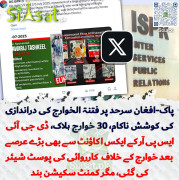RuleBre@ker
MPA (400+ posts)

“BYE-BYE banks,” taunts the home page of TransferWise, a London-based startup. “You’ve had your fun.” Taavet Hinrikus, one of the firm’s co-founders, dubs it “the Skype of money transfers”. He should know. He was one of Skype’s first employees and is using the same principle of peer-to-peer networking to slash the rates that people pay to send money abroad.
At Skype, Mr Hinrikus was paid in euros but he would spend his earnings in London where he lived in a rented apartment. A friend, Kristo Krmann, was paid in pounds but had a mortgage to settle in Estonia. The two worked out an arrangement: Mr Krmann would cover Mr Hinrikus’s rent and get equivalent euros in return in his Belgian bank account. Instead of turning to banks, which charge a hefty commission of 3-6% for such transfers, the soon-to-be business partners would log on to Reuters and use the mid-market exchange rates to determine how much money should be swapped into their bank accounts.
The pair turned this homespun deal into a proprietary algorithm to connect people wanting to wire money to their home countries. If someone in Britain, say, wants to transfer money to his relative in Spain, he will put the cash in Transferwise’s British account. The algorithm then spots someone in Spain who wants to make a transfer in the other direction, and who deposits funds in the firm’s Spanish account. Rather than crossing borders to reach its destination, money can simply be paid out of the relevant national account.
In 2011, its first year of operation, Transferwise transferred 10m ($16m); it breached the 50m mark in December. It charges a miserly fee of 1 for making transfers up to 300, and a variable charge for transferring larger amounts. Its 10,000-odd customers are spread across Britain, Switzerland, Poland, Sweden and Denmark. They are mostly young working professionals who either have a mortgage to pay or a family to support back home. Retirees with a second home abroad and startups with foreign subsidiaries also use the site.
Critics point to the risk of money-laundering. TransferWise retorts that it is subject to the same “know your customer” rules as any commercial bank. A bigger problem is scaling up in countries that have fewer immigrants than migrs. The demand for converting Indian rupees, say, into pounds may be less than the demand the other way. That means you still need a bank to stand in the middle of a transaction. Not “bye-bye”, then, but a possible black eye.
Source
At Skype, Mr Hinrikus was paid in euros but he would spend his earnings in London where he lived in a rented apartment. A friend, Kristo Krmann, was paid in pounds but had a mortgage to settle in Estonia. The two worked out an arrangement: Mr Krmann would cover Mr Hinrikus’s rent and get equivalent euros in return in his Belgian bank account. Instead of turning to banks, which charge a hefty commission of 3-6% for such transfers, the soon-to-be business partners would log on to Reuters and use the mid-market exchange rates to determine how much money should be swapped into their bank accounts.
The pair turned this homespun deal into a proprietary algorithm to connect people wanting to wire money to their home countries. If someone in Britain, say, wants to transfer money to his relative in Spain, he will put the cash in Transferwise’s British account. The algorithm then spots someone in Spain who wants to make a transfer in the other direction, and who deposits funds in the firm’s Spanish account. Rather than crossing borders to reach its destination, money can simply be paid out of the relevant national account.
In 2011, its first year of operation, Transferwise transferred 10m ($16m); it breached the 50m mark in December. It charges a miserly fee of 1 for making transfers up to 300, and a variable charge for transferring larger amounts. Its 10,000-odd customers are spread across Britain, Switzerland, Poland, Sweden and Denmark. They are mostly young working professionals who either have a mortgage to pay or a family to support back home. Retirees with a second home abroad and startups with foreign subsidiaries also use the site.
Critics point to the risk of money-laundering. TransferWise retorts that it is subject to the same “know your customer” rules as any commercial bank. A bigger problem is scaling up in countries that have fewer immigrants than migrs. The demand for converting Indian rupees, say, into pounds may be less than the demand the other way. That means you still need a bank to stand in the middle of a transaction. Not “bye-bye”, then, but a possible black eye.
Source
Last edited by a moderator:






































